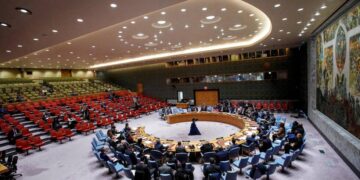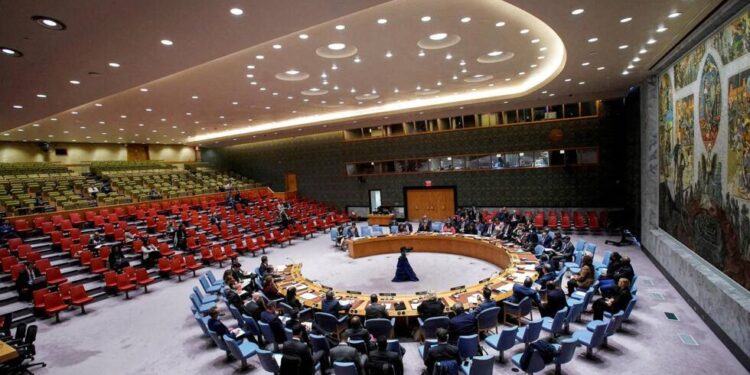By Oyintari Ben
Thursday marks the end of UN sanctions in Mali following Russia’s veto of a regime renewal that targeted anybody breaking or blocking a 2015 peace agreement, impeding aid delivery, abusing human rights, or enlisting children as fighters.
This month, independent UN sanctions monitors informed the Security Council that violence against women and other “grave human rights abuses” are being used by Mali’s military and its foreign security allies, thought to be the Wagner mercenary group from Russia, to foment terror.
A resolution to prolong the United Nations sanctions and independent monitoring for an additional year was approved by the Security Council with the support of 13 members, including France and the United Arab Emirates. China did not participate in the voting, and Russia exercised a veto.
Russia then suggested extending the UN sanctions in Mali for one more year while promptly terminating the independent monitoring. Japan cast the lone no vote, and the other 13 members abstained. It was the sole nation to vote yes.
Robert Wood, the deputy United States ambassador to the United Nations, informed the council that Russia sought to remove the independent monitoring “to stifle publication of uncomfortable truths about Wagner’s actions in Mali, which require attention.”
In response, Russia’s Deputy UN Ambassador Dmitry Polyanskiy told Reuters that was speculation and resembled “paranoia,” adding that Russia was “upholding the interests of the affected country – Mali, as the council is supposed to do.”
The United States has also charged Wagner, which has around 1,000 fighters stationed in Mali, with orchestrating the junta’s sudden request to withdraw a 13,000-strong UN peacekeeping force. By the end of the year, the ten-year-old operation will be shut down.
In 2021, Wagner joined forces with the junta that had taken control of Mali following coups in 2020 and 2021 to combat an Islamist uprising. President Vladimir Putin ordered Wagner fighters to sign an oath of allegiance to the Russian government after Wagner head Yevgeny Prigozhin perished in a plane crash in Russia last week.
This month, the military government of Mali wrote to the Security Council to request the removal of the sanctions.
The current year’s mandate for the independent monitoring and UN sanctions regime will end on Thursday.
After the two votes on Wednesday, Russian Ambassador to the United Nations Vassily Nebenzia said his country will not bring up the subject again.
In 2017, the council introduced the Mali sanctions system, allowing it to impose asset freezes and travel restrictions. Eight people are currently affected by the UN sanctions measures. The council received reports from the independent monitors on implementation and prospective additional designations twice a year.




































